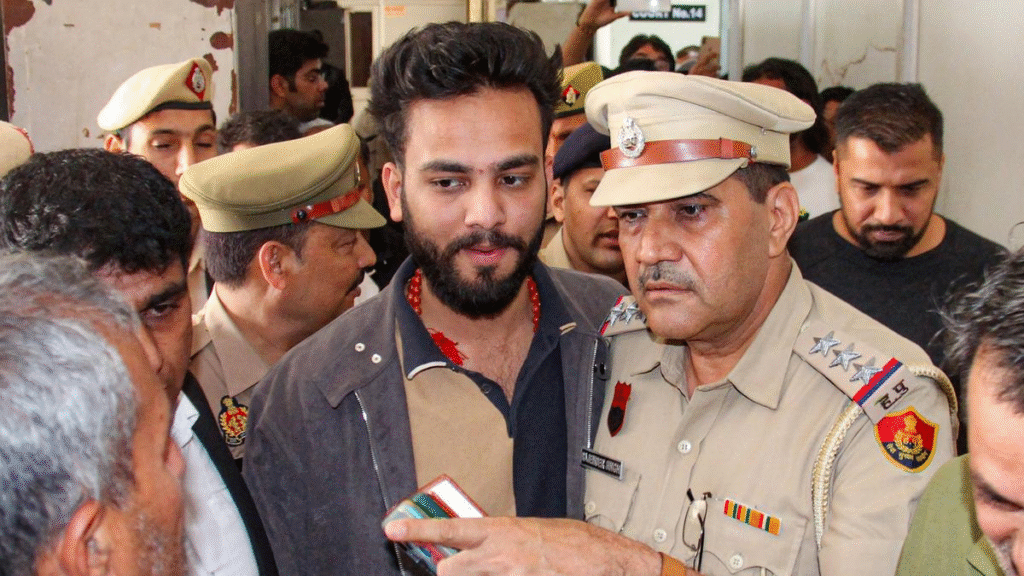Supreme Court Halts Trial Against YouTuber Elvish Yadav in Snake Venom Case Linked to ₹15 Crore Rave Party Ring
The Supreme Court has stayed trial court proceedings against YouTuber Elvish Yadav in the high-profile snake venom case, allegedly linked to a ₹15 crore illegal rave party network
In a significant legal development, the Supreme Court of India on Tuesday stayed the trial court proceedings against popular YouTuber and Bigg Boss OTT winner Elvish Yadav in connection with the alleged use of snake venom at rave parties, a case that has stirred national debate and drawn widespread media attention. The stay comes as a temporary relief for the social media influencer who has been under the scanner for his alleged involvement in what authorities describe as a ₹15 crore illegal rave party and wildlife trafficking network.
The case dates back to November 2023, when Elvish Yadav was first named in an FIR filed by the Noida Police under the Wildlife Protection Act, the Narcotic Drugs and Psychotropic Substances (NDPS) Act, and several sections of the Indian Penal Code (IPC). The charges stemmed from alleged use and supply of snake venom as a recreational drug at high-profile parties in and around Delhi-NCR, allegedly organized or attended by Elvish and his circle.
The Noida Police arrested five individuals, including snake charmers and event organizers, who allegedly confessed to supplying snakes and venom for use at parties. During the investigation, Elvish Yadav’s name surfaced, and videos purportedly showing him with snakes went viral on social media.

By March 2024, Elvish was arrested and later released on bail after spending a few days in judicial custody. The case has since become one of the most closely watched celebrity-crime sagas in India, with debates surrounding influencer culture, animal cruelty, and the unchecked rise of rave drug culture.
On August 6, 2025, a bench led by Justice Sanjiv Khanna heard Elvish Yadav’s special leave petition, which challenged the continuation of trial court proceedings in Gautam Buddha Nagar. Yadav’s legal team argued that the charges were baseless, politically motivated, and without material evidence directly linking him to the trafficking or use of snake venom.
Accepting the arguments prima facie, the Supreme Court ordered a stay on further proceedings in the lower court, giving Yadav temporary respite. The apex court also sought responses from the Uttar Pradesh Police and the Ministry of Environment, Forest and Climate Change, asking for a status update on the wildlife crime aspects of the investigation.

While Elvish has repeatedly denied any wrongdoing, the case file includes several serious allegations:
Snake Venom Trafficking: Authorities allege that Elvish facilitated access to rare snakes and venom, including from endangered species like cobras and kraits, during his parties.
Wildlife Protection Act Violation: Possession and use of snakes without valid documentation is a criminal offense under Sections 9, 39, and 51 of the Wildlife Protection Act, 1972.
NDPS Act Concerns: Snake venom contains neurotoxins, which if chemically altered or concentrated, can act as a recreational hallucinogen—thereby falling under the ambit of the NDPS Act.
Social Media Evidence: Viral videos allegedly show Elvish handling snakes and boasting about party lifestyles, though his lawyers argue these were scripted or unrelated to any criminal activity.
Elvish Yadav’s counsel has argued that:
There is no forensic proof of venom usage by Yadav.
Videos in question are years old, without a direct connection to any specific party or criminal act.
The accused snake handlers had no direct link to Yadav, and their confessions were allegedly coerced.
The entire case has been sensationalized by the media due to Elvish’s celebrity status.
Senior Advocate Kapil Sibal, representing Elvish, told the Supreme Court that continuing the trial based on mere conjecture and social media videos would amount to misuse of judicial resources and violation of the accused’s fundamental rights.
The case has captivated public imagination due to the bizarre intersection of wildlife crime, celebrity culture, and substance abuse. Elvish Yadav, who commands a following of over 15 million subscribers on YouTube and 10 million followers on Instagram, has a massive Gen-Z fanbase.
While many fans supported him on social media using hashtags like #JusticeForElvish and #WeStandWithElvish, animal rights groups and environmentalists have demanded strict action. Organizations such as PETA India and Wildlife SOS have emphasized the seriousness of snake abuse and venom trafficking, calling it a threat to biodiversity and public health.
Snake venom, while traditionally used in anti-venom and medical research, has increasingly found its way into underground party circuits, where it is used in microdoses for hallucinogenic highs. This black-market trend has alarmed law enforcement and wildlife protection agencies.
According to data from Wildlife Crime Control Bureau (WCCB), India has seen a 40% increase in snake-related poaching and trafficking cases in the last three years. The Elvish Yadav case is seen as a test case for how the judiciary handles celebrity involvement in wildlife-linked crimes.
The Supreme Court’s stay order is temporary and does not exonerate Elvish Yadav. The court will re-examine the case after receiving responses from law enforcement and environmental bodies. If sufficient evidence is found, proceedings could resume.
Meanwhile, Elvish has resumed creating content and hosting public events, though with more caution. His legal team maintains that “truth will prevail” and calls the case an attempt to “defame a rising youth icon.”
The matter is expected to be listed again in late September 2025 for a detailed hearing.








